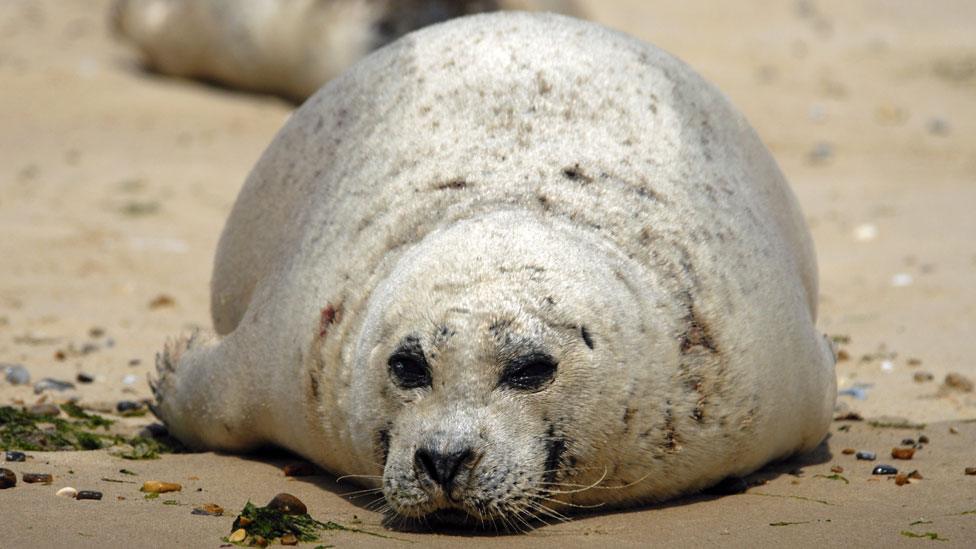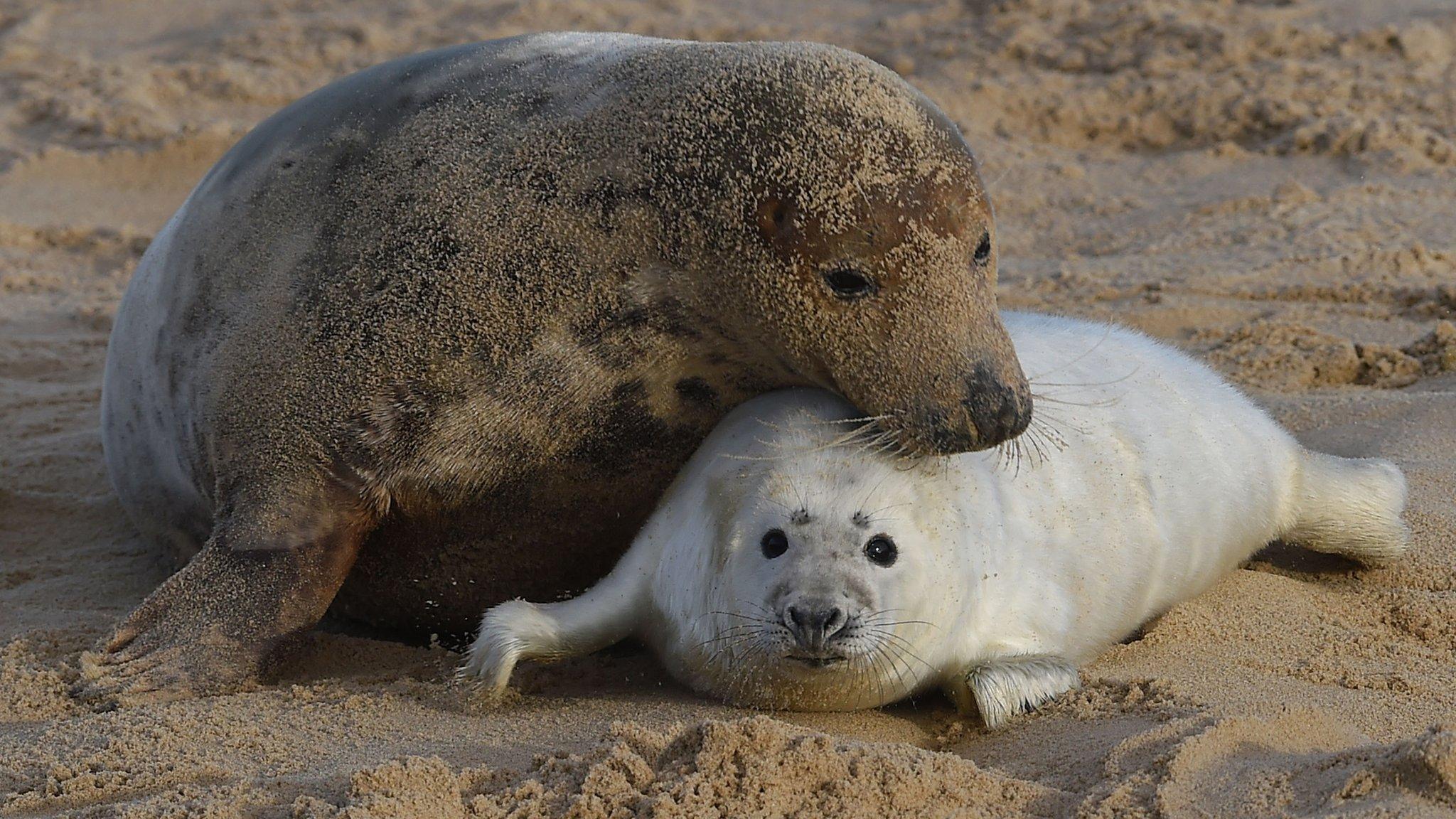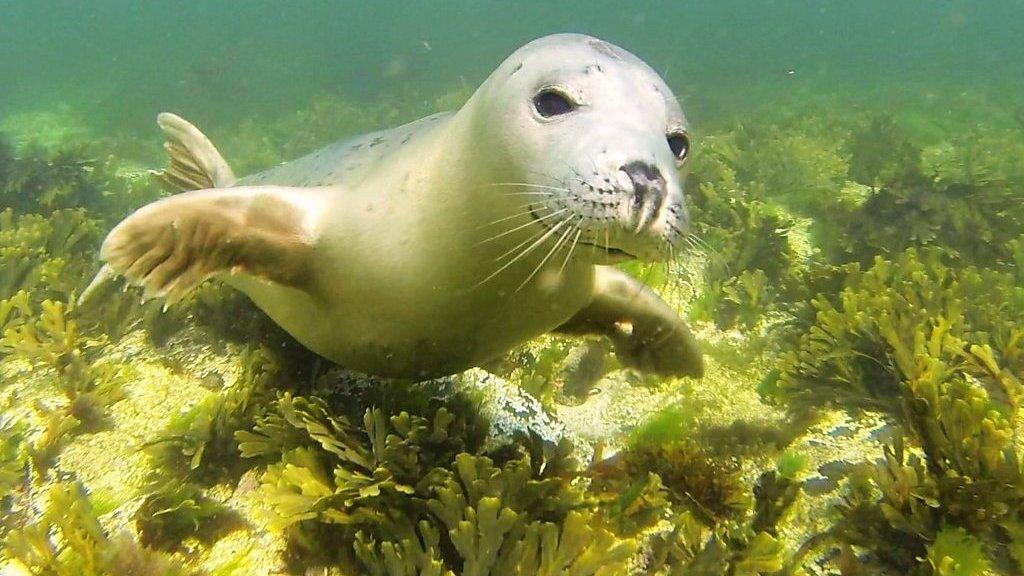Coastguard warns public over basking seal 999 calls
- Published

People have reported seeing an increase in grey seals on beaches
Coastguard officers have been inundated with calls from people mistaking seals basking on beaches along the east coast as being injured.
More animals have come ashore to take refuge because of weather conditions, prompting a "huge number" of 999 calls to the Humber Coastguard.
Officer Jordan Grebby said some seals had become aggressive after people had tried to push them back into the sea.
He urged people to think whether the seals were resting before dialling 999.
Read more stories from across East Yorkshire and northern Lincolnshire
The Humber coastguard serves East and North Yorkshire and north-east Lincolnshire.
'Big long sleep'
Mr Grebby, senior maritime operations officer, said: "From our point of view it's not unusual to see seals on the beaches but over the last week or so we've had a high volume of calls, more than I can ever remember experiencing.
"The problem has been that well-meaning people haven't realised that the seals aren't injured and, as air-breathing mammals, will often come ashore."
He asked people not to touch the seals as the smell of humans meant their mothers might reject them.
Gen MacCallum, from the British Divers Marine Life Rescue charity, said usually seals spotted on beaches were having "a big long sleep and a rest" and if a seal was injured there would be noticeable signs.
"A lot of the time at the moment it's the pups, where they simply haven't got the energy or strength that the adults have and they need more time to rest after having a swim around," she said.
Mr Grebby said if a seal was genuinely injured people could contact the coastguard via 999 or the British Divers Marine Life Rescue as well as the RSPCA.
- Published14 December 2017

- Published6 December 2016
